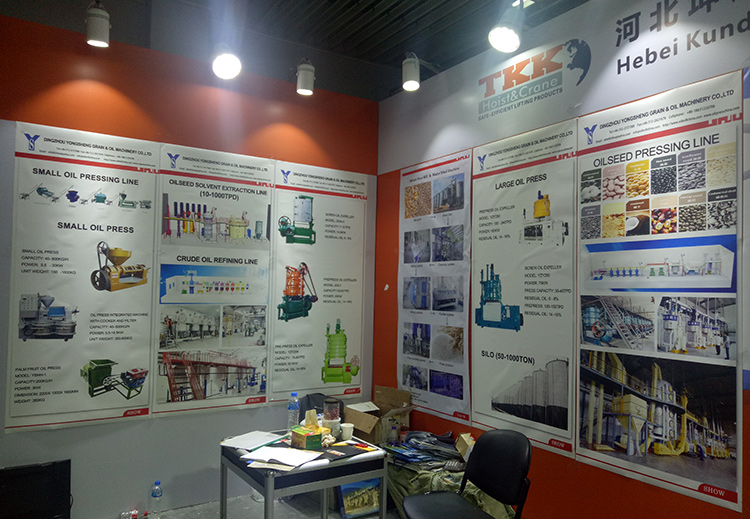Jul . 26, 2024 07:22 Back to list
Explore the Best Oil Press Filter Machines for Efficient Cooking Oil Production and Quality Filtering
Understanding Food Oil Press Filter Machines A Guide for Buyers
In today's health-conscious world, the demand for pure, high-quality cooking oil has surged significantly. As consumers become more aware of the benefits of natural oils, the popularity of food oil press filter machines is on the rise. If you're considering purchasing one of these machines, it's essential to understand how they work, their benefits, and some key considerations to keep in mind.
What is a Food Oil Press Filter Machine?
A food oil press filter machine is a device that extracts oil from various seeds and nuts, such as sunflower seeds, peanuts, and olives. These machines utilize a mechanical process to crush the raw materials, pressing them to release their oil. The extracted oil often requires further purification, which is where the filter component comes into play. It removes impurities, resulting in a cleaner and healthier oil product.
Benefits of Using a Food Oil Press Filter Machine
1. Healthier Oils Extracted oils using these machines retain more nutrients and flavors compared to commercially processed oils that often contain chemicals or additives. Cold-pressing oils can preserve the natural taste and health benefits, making them a superior choice for health enthusiasts.
2. Cost-Effectiveness Investing in an oil press filter machine can yield significant cost savings in the long run. While the initial purchase may seem expensive, the ability to produce your oil means you won't need to buy expensive bottled oils frequently. This is particularly beneficial for restaurants or households that use large quantities of cooking oil.
3. Customizability With your machine, you can experiment with different seeds and nuts, creating unique blends or intended flavors that store-bought oils may not offer. This level of customization allows for culinary creativity and healthier options tailored to your dietary needs.
4. Eco-Friendly Solution By producing your cooking oil, you're reducing reliance on oil manufacturers, significantly cutting down on packaging waste and environmental impact. This aligns with a growing trend toward sustainability in food production.
buy food oil press filter machine

Key Considerations When Buying
When looking to purchase a food oil press filter machine, here are several factors to consider
1. Capacity Determine your needs regarding oil production. Machines come in varied capacities, so consider whether you'll be using it for personal use or commercial purposes. A larger capacity may be warranted for businesses that require high volumes of oil.
2. Type of Oil Different machines are designed for specific kinds of seeds and nuts. Ensure that the machine you select is capable of handling the types of oil you intend to produce.
3. Quality and Durability Look for machines made from high-quality materials that are built to last. Stainless steel models are typically more durable and easier to clean, ensuring you get the best value for your investment.
4. Ease of Use and Maintenance Choose a machine that is user-friendly and comes with clear instructions. Additionally, consider how easy it is to maintain and clean the machine, as this will be crucial for ensuring high-quality oil production.
5. Cost Set a budget before starting your search. While you want a machine that meets your quality demands, it's essential to find one that fits your budget constraints without compromising on vital features.
Conclusion
A food oil press filter machine is an excellent investment for anyone interested in producing their natural oils. By understanding the benefits and considering key factors when buying, you can make an informed decision that suits your needs. As consumer preferences continue to shift toward healthier and more sustainable options, these machines are likely to play an increasingly significant role in both domestic kitchens and commercial kitchens alike. Whether you’re a home cook or a professional chef, having the ability to produce high-quality oil can elevate your culinary practices to new heights.
-
HP 120 Cold Oil Press - Hebei Huipin Machinery | Automated Oil Extraction&High Efficiency
NewsAug.15,2025
-
HP 120 Model Cold Oil Press - Hebei Huipin Machinery | High-Efficiency Oil Extraction & Automated Processing
NewsAug.15,2025
-
HP 120 Cold Oil Press-Hebei Huipin Machinery|Oil Extraction, Cold Press Technology
NewsAug.15,2025
-
HP 120 Model Cold Oil Press - Hebei Huipin Machinery Co., Ltd. | High Automation, Multi-Functional Compatibility
NewsAug.15,2025
-
Efficient Black Seed Oil Expeller | High Yield Oil Press Machine
NewsAug.15,2025
-
HP 120 Cold Oil Press - Hebei Huipin | Energy-Efficient, High-Quality
NewsAug.14,2025
